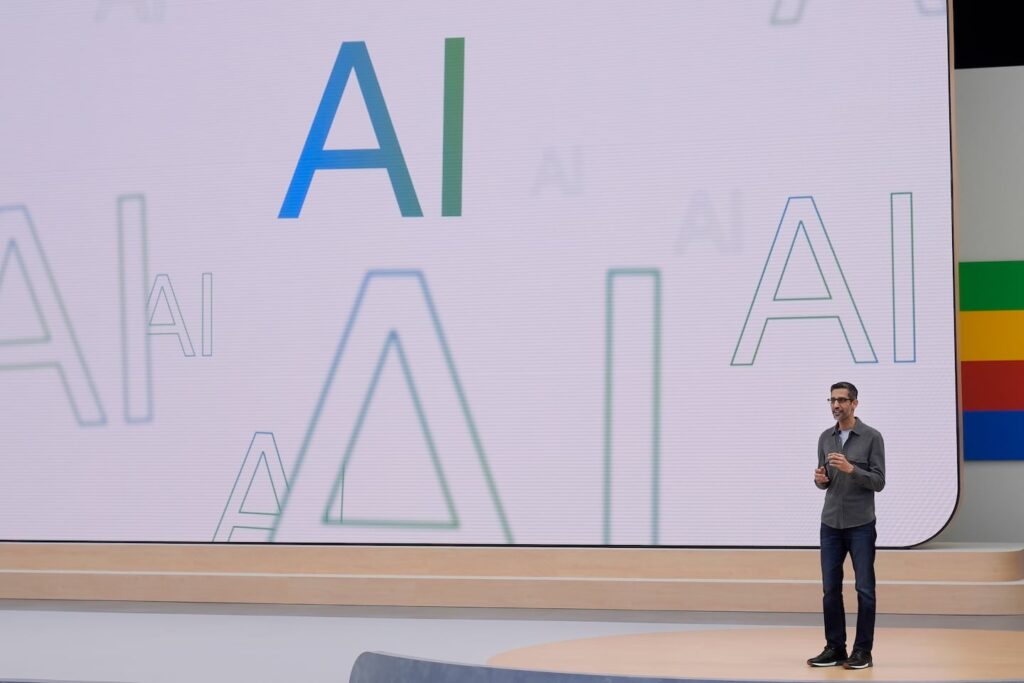SAN FRANCISCO — Google said it is scaling back its use of AI-generated answers in some search results after its technology made high-profile errors, including telling users to put glue on pizza and saying President Barack Obama is Muslim.
Google began showing artificial intelligence-generated answers at the top of search results for U.S. users two weeks ago, but users and search engine experts began noticing on Thursday that a significant drop in search queries was triggering the AI answers compared to previous years.
In a blog post Thursday afternoon, Google search chief Liz Reid confirmed that the company was scaling back some of its AI answers, which it calls “AI summaries.” The company has reduced its use of social media posts as source material for AI answers, suspended some answers on health-related topics, and “added trigger limits for queries where we found AI summaries to be less helpful,” Reid said in the post.
The change is the latest example of Google launching an AI product with much fanfare and then backtracking after it flopped: In February, the company blocked users from creating images of people with its AI image tool after conservative critics accused the company of racism towards white people.
The technology industry is in the midst of an AI revolution, with startups and large technology companies alike exploring new ways to incorporate AI techniques into their products and generate revenue. Many tools have yet to reach mainstream adoption as companies race to be first to market with their products and establish themselves as cutting edge.
Get caught up in
Summarised stories to keep you up to date
Google, whose employees invented much of the technology underlying breakthrough AI tools like ChatGPT, has been trying to prove to investors, consumers and its own employees that it remains the most important player in the industry. At its I/O conference this month, the company made more than 100 AI-related announcements.
The biggest announcement was that Google will start rolling out AI-generated answers in search results to most users. Google has been testing AI answers with a portion of its users for a year, but adding AI answers to more search results means most users will be able to interact with the generating AI directly in the tools they use every day.
The technology works by reading websites that would otherwise appear in Google search results and summarizing them into multi-paragraph answers. Publishers have expressed frustration, accusing the company of hurting their business by extracting their content and displaying it directly in search results, taking away vital web traffic.
But journalists, search engine experts and social media users quickly began to notice something wrong with the answers: Some of the answers were amusing, others worrying, and they appeared on even sensitive questions, including those related to health.
One answer, which Google has since revised, suggested drinking lots of urine to flush kidney stones, while another said that John F. Kennedy graduated from the University of Wisconsin-Madison in six separate classes, three of which were posthumous.
While Google tried to test the tool as much as possible before rolling it out more broadly, the full rollout revealed a number of situations the company was not prepared for, Reed said.
“The fact that millions of people will use this is unique,” Reed said.



